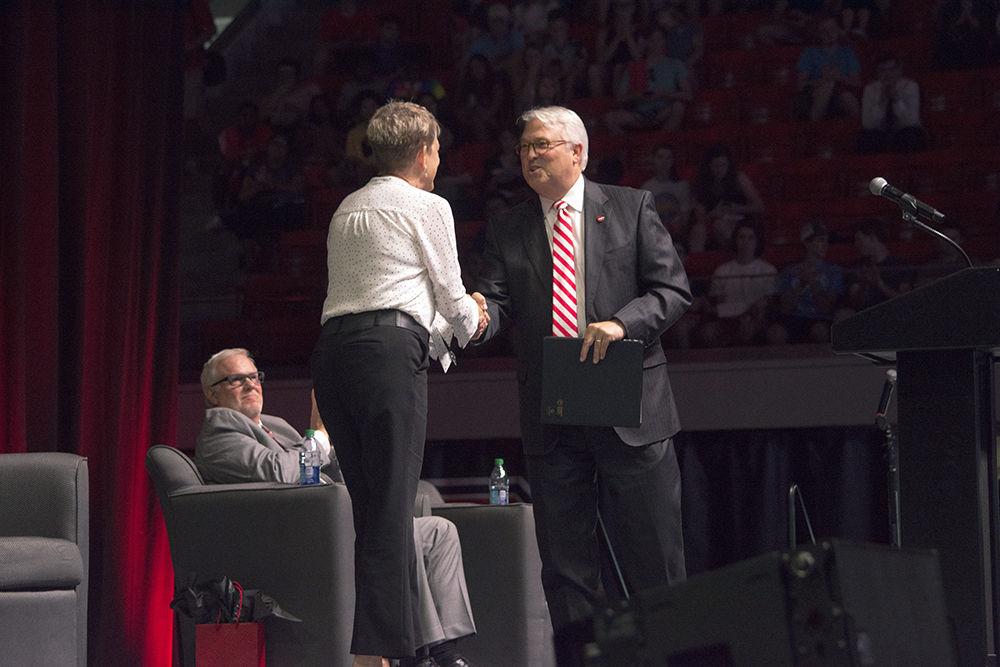Author and NC State’s 2018 Convocation speaker, Kathryn Edin, aims to bring awareness to extreme poverty in the United States and connect with students on college campuses about the issue of student food insecurity.
Edin’s book, ‘$2 a Day: Living on Almost Nothing in America’ follows the story of eight individuals and their journeys while living in poverty. According to Edin, she began researching poverty as a sophomore in college and she has been researching the subject for 30 years.
Edin said that this book is the seventh of eight that she has written, but this one was different from the others.
Technician: What inspired you to put a lot of your research condensed into a book, and what inspired you to write?
Kathryn Edin: “… Each book is really special; this book is the only book that I’ve written that really follows eight families over a really long period of time. Usually I study much larger groups of people, still using the ethnographic method, still talking to people about their lives, but this was a very special book. I got to know the families super well and it changes you once you begin to form new relationships with people that kind of extend beyond the research. So, this was a very intense book to write. I mean, I’ve written about poverty for 30 years… this one got to me, studying people who are at the very, very bottom of the poverty pyramid so to speak.”
Technician: How did you get connected with these families, and was it difficult for you to stay objective?
Edin: “… What I am is a storyteller and a listener, and it’s incredible how much power people take from having their stories heard and having a chance to give voice to their experiences. You would think it would be debilitating for them, but it’s empowering. People love the experience of someone just sitting and just listening. You know I think sometimes my students will say ‘well what can we do?’ And I’m like, well, bearing witness and allowing someone to have their story heard is doing something. And, actually, there’s research showing that having your story heard and being heard by someone who’s a sympathetic listener is powerful in and of itself.”
Edin also said that she got in touch with the different families through different contacts she knew in each city she visited. She emphasized that the issue of food insecurity on campus is one that a lot of people, specifically those at college, do not realize. One of those reasons is because students can feel ashamed of their situation.
Technician: At convocation, speaking to college students, why do you think that this is something important for students to be aware of?
Edin: “… We are not realizing the kind of sacrifices people are making to go to college and stay in college. It benefits all of us to make sure those students succeed. That’s part of it, but you know [at convocation] I met dozens and dozens of students who said ‘this was my story, and I’ve never been able to talk about it and I’ve always felt so ashamed.’ So how do we bring those students into the community, how do we make sure they’re experiences are valorized and that they don’t carry around that shame? One way to do that is to let them know they’re not alone. And that not everything that happens in life is your fault.”
Technician: What are some of your thoughts on NC State’s efforts to combat food insecurity on campus, like Feed the Pack food pantry and Pack Essentials?
Edin: “It’s impressive, honestly. I think one of the things I really like about what NC State is doing is, they are both things happening that are really student-led, and really thoughtfully led. But there’s also action on the part of the administration. I think that the fact you can give back your guest passes in the dining hall, brilliant. What a great solution, everybody wins… What I think is most remarkable is that the university’s committed itself to exploring this theme for the year and I don’t know of another place that’s doing that. There probably are, but I’ve been to a lot of college campuses and they may have a food or hunger day, but you know this is impressive.”
Students interested in learning more about how they can get involved with NC State’s efforts to combat food insecurity on campus can visit the Division of Academic and Student Affairs website. Highlights of Technician’s interview with Edin are available on YouTube.








